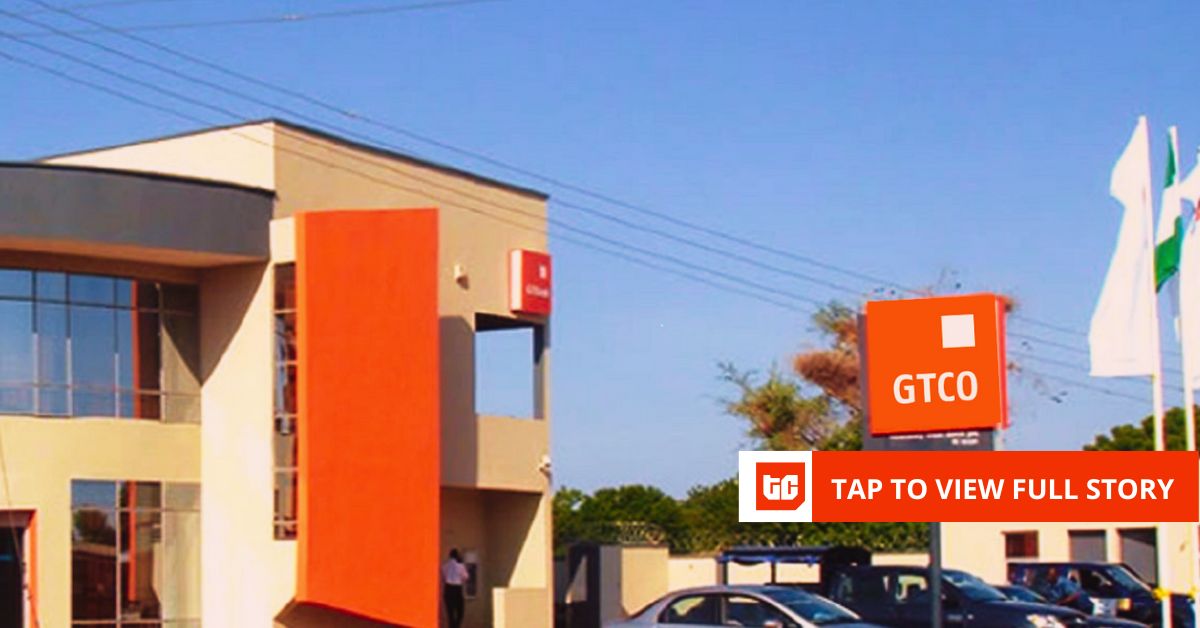This is Follow the Money, our weekly series that unpacks the earnings, business, and scaling strategies of African fintechs and financial institutions. A new edition drops every Monday.
Guaranty Trust Holding Company Plc (GTCO), one of Nigeria’s largest financial services groups, is finally seeing results on its big technology bet. Its two digital platforms—GTWorld and GAPS/GAPSLite—processed ₦35.8 trillion ($24.6 billion) in transactions in the first half of 2025, a 19.33% jump from ₦30 trillion ($20.62 billion) in H1 2024.
This marks the bank’s strongest digital performances yet in the face of competition from neobanks and fintechs, who defined convenience and speed in today’s digital space. GTBank’s numbers show that as more customers migrate online, legacy banks can keep up because of their already large customer base and investment spread.
Since H1 2021, GTCO has increased its tech spend by more than 450.97% from ₦6.85 billion ($4.71 million) to ₦37.76 billion ($25.95 million) in H1 2025, as the bank played catch-up with fintechs like OPay and Palmpay, which took the transfer space by storm in 2021.
In 2024 alone, the bank’s tech spend increased by 48.4% to ₦88 billion ($60.47 million), “in line with the Group’s growth aspirations, necessitating increased spend on technology.”
The bank is not alone. Six of Nigeria’s biggest banks, including GTCO, increased their combined tech spend by 74.5% to ₦268.7 billion ($184.65 million) in 2024 to fund upgrades to core banking systems, digital channels, ATM networks, databases, and fraud detection.
The digital shift
Beyond competing with fintechs, the surge in GTCO’s transactions reflects a broader trend in how Nigerians move money. Instant payments jumped by 78.3% to ₦1.07 quadrillion ($735.31 billion) in 2024 from ₦600 trillion ($412.32 billion) in 2023, and already at ₦284.99 trillion ($195.85 billion) in Q1 2025.
Nigeria recorded the steepest decline in cash transactions globally over the last decade, according to a recent report by Worldpay, a global payment company. Between 2014 and 2024, the country saw a 59% drop in cash use, beating out the Philippines, Indonesia, and Germany. This shift has been powered by smartphones, fintech reliability, and regulatory nudges like cashless policy limits and instant payment rails.
Spending pays off
Increased usage of GTCO’s digital channels translated to a 172.58% surge in e-business income to ₦28.61 billion ($19.66 million) in H1 2025, up from ₦10.49 billion ($7.21 million) in H1 2021. E-business income was 18.89% of the bank’s total ₦151.46 billion ($104.09 million) income from fees and commissions.
The bank’s fintech subsidiary, HabariPay, is also cashing in. In just three years, its profit has grown 12-fold, from ₦322.9 million ($221,898) in H1 2022 to ₦4.02 billion ($2.76 million) in H1 2025.
GTCO first launched Habari in 2018 as a super app before pivoting in 2022 to HabariPay, a focused fintech unit behind Squad, its payment gateway, and PoS business.
Fintechs lurking
Banks’ migration online has been a tale of system downtimes and integration lags, frustrating users and leaving room for fintechs that offer faster and cheaper alternatives.
Fintechs like OPay and PalmPay have built trust during crises such as the CBN’s failed naira redesign and withdrawal policy in 2022, and repeated bank glitches in 2024. PalmPay claims to process 15 million daily transactions at a 99.5% success rate. OPay says it serves 10 million daily active users and processes 100 million transactions daily.
In 2023, both fintechs were the most downloaded financial apps in the country, as they became alternative banks for many Nigerians.
“Mobile money wasn’t always perceived as viable, but we identified a core problem: system reliability, especially for simple things like free and seamless transfers,” Chika Nwosu, the managing director at Palmpay, said in May. “So we invested in technology that’s efficient and reliable.”
Banks still matter
For all their speed, fintechs have not yet cracked trust at scale. Nigerians may flirt with neobanks for quick transfers, but they park their big money in old banks.
Traditional banks have operated for decades and maintain extensive physical branches across the country, earning customer trust because disputes can be resolved in person. Fintechs, on the other hand, are newer entrants that mostly operate online, drawing scepticism from users who prefer face-to-face reassurance.
That trust explains why GTCO, with just 2.99 million active users across GTWorld and GAPS, processed ₦35.8 trillion ($24.6 billion) in six months, more than the entire mobile money industry—with 17 operators—managed in Q1 2025 (₦20.71 trillion/$14.23 billion).
While GTCO’s current tech bet is paying off, the bank plans to embed AI, biometrics, machine learning, data analytics, and emerging technologies across its business lines.
“Expand and enhance digital retail channels to further improve customer experience,” the bank disclosed in its offer prospectus.
Note: exchange rate used: ₦1,455.17/$
Mark your calendars! Moonshot by TechCabal is back in Lagos on October 15–16! Meet and learn from Africa’s top founders, creatives & tech leaders for 2 days of keynotes, mixers & future-forward ideas. Get your tickets now: moonshot.techcabal.com
Crédito: Link de origem



Comments are closed.